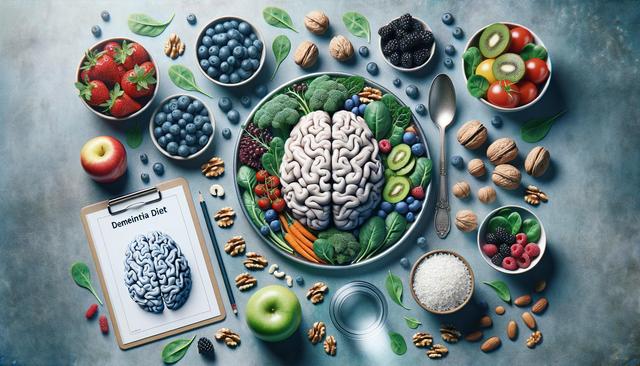Understanding the Link Between Diet and Cognitive Function
Nutrition plays a significant role in brain function, particularly in older adults. Scientific studies have shown that certain nutrients may help reduce the risk or slow the progression of cognitive decline. A brain healthy diet for older adults is not only about avoiding unhealthy foods but also about including specific nutrients that support memory, focus, and overall mental clarity. As dementia affects various aspects of mental function, including memory and behavior, nutritional strategies can provide valuable support alongside medical care.
One of the key strategies in dementia care is focusing on brain boosting meals for seniors. These meals are designed to include essential nutrients known to benefit brain health, such as antioxidants, vitamins, and healthy fats. The brain, being a high-energy organ, requires a steady supply of nutrients to function optimally. Without proper nutrition, cognitive decline can accelerate. Therefore, a focused approach to seniors nutrition and brain health can make a meaningful difference in daily functioning and quality of life.
Omega-3 Fatty Acids and Memory Support
Omega-3 fatty acids are among the most researched nutrients for cognitive health, with several studies linking them to improved memory and slower cognitive decline. These essential fats are primarily found in fatty fish, nuts, and seeds, and are a cornerstone of any brain healthy diet for older adults. Regular intake of omega-3 fatty acids for memory has been associated with structural brain benefits and a lower risk of dementia-related conditions.
Including daily omega-3 brain support in a senior’s diet can be achieved through both food and supplements. Here are some sources to consider:
- Salmon, mackerel, and sardines
- Chia seeds and flaxseeds
- Walnuts
- Algae-based omega-3 supplements (for those avoiding fish)
While omega-3s are not a cure, they are a valuable tool in promoting cognitive resilience. Their anti-inflammatory properties also support heart health, which is closely linked to brain function. For caregivers and families, ensuring that meals include these healthy fats regularly can be a simple yet effective way to support brain health.
Nutrient-Rich Foods That Promote Mental Focus
Aside from omega-3s, several other nutrients contribute to mental sharpness and memory retention. Foods rich in antioxidants, such as leafy greens and berries, help protect brain cells from damage caused by free radicals. Similarly, B vitamins, especially B6, B12, and folate, play a critical role in maintaining brain health and reducing brain shrinkage in older adults.
These are some of the best foods for mental focus that can be incorporated into a dementia-friendly diet:
- Blueberries and strawberries – rich in antioxidants
- Spinach and kale – loaded with folate and vitamin K
- Whole grains – provide a steady supply of glucose to the brain
- Avocados – a source of healthy fats and vitamin E
Creating brain boosting meals for seniors that feature these foods can aid in maintaining alertness and mental clarity. It’s also helpful to prepare meals that are easy to chew and digest, especially for seniors experiencing changes in appetite or swallowing difficulties due to dementia.
Meal Planning Tips for Dementia Care
Planning meals for someone with dementia requires attention to both nutritional value and presentation. Seniors with dementia may experience changes in taste preferences, appetite, and the ability to recognize food. Therefore, meals should be visually appealing, easy to eat, and nutritionally dense. Caregivers should work on developing a routine that includes consistent meal times and familiar dishes to reduce confusion and promote better eating habits.
Here are a few meal planning tips that align with seniors nutrition and brain health:
- Use colorful fruits and vegetables to stimulate appetite
- Include high-protein options like eggs, beans, or lean poultry
- Limit processed foods high in sugar and sodium
- Keep hydration in check with water, herbal teas, and broths
It can also help to involve the senior in simple meal preparation tasks if they are able, as this can promote engagement and a sense of independence. Prioritizing consistency and simplicity in food choices can reduce stress during meals and enhance nutritional intake.
Long-Term Benefits of a Brain-Focused Diet
Over time, maintaining a brain healthy diet for older adults can contribute to improved quality of life. Although no diet can reverse dementia, focusing on nutrition can slow cognitive decline, improve mood, and support better overall health. Nutritional strategies also support other systems in the body, such as cardiovascular health, which is closely tied to brain function.
Establishing daily omega-3 brain support and incorporating the best foods for mental focus are practical steps that families and caregivers can take. These efforts, combined with other supportive care measures, contribute to a comprehensive approach to dementia management. Brain boosting meals for seniors don’t have to be complex; even small dietary changes can create meaningful health outcomes over time.
For seniors, maintaining dignity and independence is often a top priority. A thoughtful, well-planned diet can support both physical and emotional well-being, making it a valuable part of any dementia care plan.
Conclusion: Empowering Cognitive Health Through Nutrition
For families and caregivers supporting someone with dementia, nutrition is a powerful tool in promoting cognitive well-being and enhancing daily living. By focusing on seniors nutrition and brain health, incorporating omega-3 fatty acids for memory, and preparing brain boosting meals for seniors, caregivers can make a positive impact. While diet alone cannot prevent or cure dementia, it is a meaningful component of a comprehensive care strategy that supports long-term brain health and quality of life.




Leave a Reply